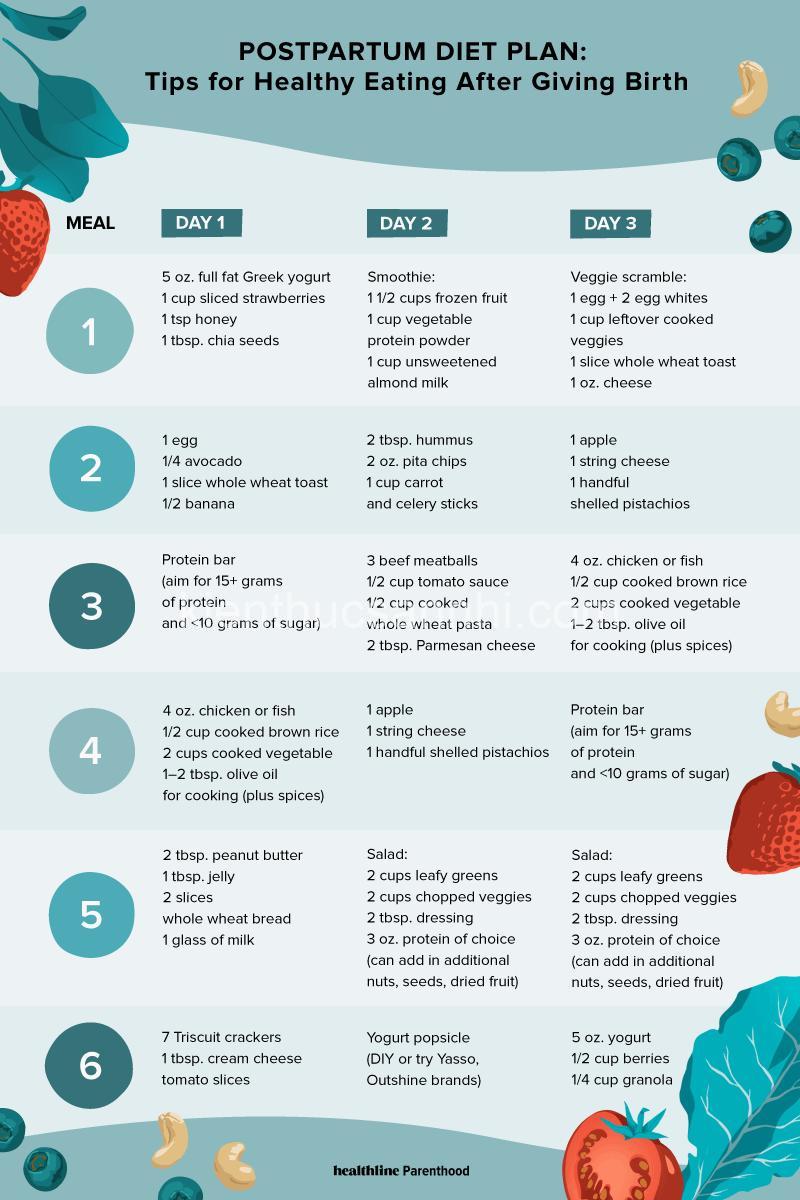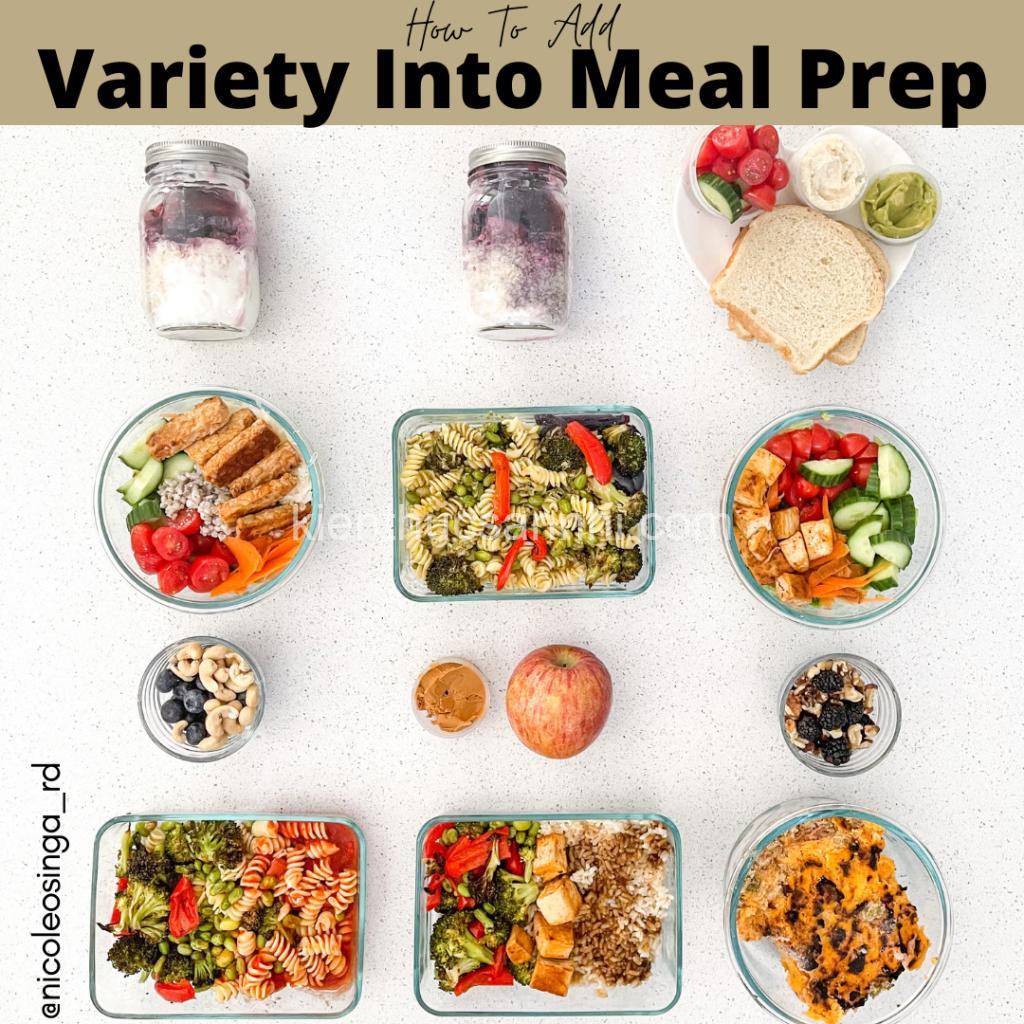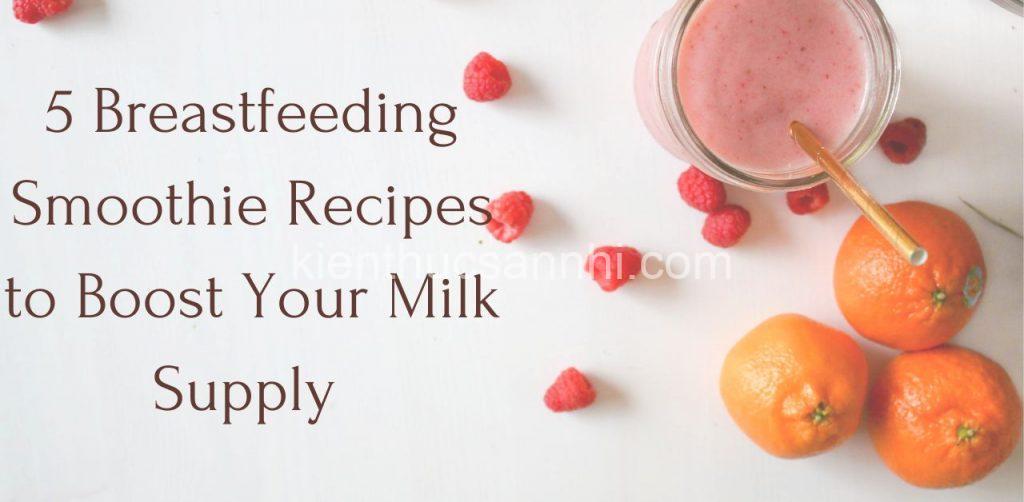
Postpartum Nutrition Plan: Understanding Your Needs & Building a Balanced Diet. In today’s article, kienthucsannhi.com will explore with you in the most detailed and complete way. See now!
Understanding Your Postpartum Nutritional Needs
Your body goes through incredible changes during pregnancy and childbirth. To recover and thrive, it’s important to understand your unique postpartum nutritional needs. After all, your body is now working hard to heal, produce milk (if breastfeeding), and care for your little one.
First, let’s talk about nutrients. You’ll need extra iron to replenish your stores after blood loss during delivery. Calcium is crucial for bone health, and vitamin D is vital for both your and your baby’s bone development. You’ll also need increased amounts of B vitamins for energy production and cell growth.
Second, think about your energy needs. You’re expending more energy than usual, especially if you’re breastfeeding. It’s essential to eat enough calories to support your body’s demands, but remember, it’s not about eating “for two.” It’s about choosing nutritious foods that provide the energy and nutrients you need.
Finally, hydration is key. Drinking plenty of water is vital for milk production, energy levels, and overall health. Aim for at least eight glasses of water daily, and more if you’re breastfeeding.

Building a Balanced Postpartum Diet
A balanced diet is the foundation for a healthy postpartum recovery. Your meals should include all the major food groups:
- Protein: Essential for tissue repair, milk production, and energy. Good sources include lean meats, fish, eggs, beans, and tofu.
- Complex Carbohydrates: Provide sustained energy and fiber for digestion. Choose whole grains, fruits, vegetables, and legumes.
- Healthy Fats: Important for hormone production and brain development. Good sources include avocados, nuts, seeds, olive oil, and fatty fish.
- Fruits and Vegetables: Packed with vitamins, minerals, and fiber. Aim for a variety of colorful fruits and vegetables each day.
Tailoring Your Postpartum Nutrition Plan
Every mom is different, so it’s important to tailor your nutrition plan to your specific needs. Here are some common postpartum concerns and how to address them:
Iron Deficiency
Iron is essential for producing red blood cells, which carry oxygen throughout your body. Many women experience iron deficiency after childbirth due to blood loss during delivery and increased iron demand for milk production. To increase your iron intake, include iron-rich foods in your diet, such as:
- Lean red meat
- Chicken
- Fish
- Beans
- Lentils
- Fortified cereals
You may also want to consider taking an iron supplement under your doctor’s guidance.
Weight Management
Weight loss after childbirth is a personal journey. Don’t put pressure on yourself to shed the baby weight immediately. Focus on gradually making healthy changes, like increasing your physical activity and eating a balanced diet. Avoid fad diets or extreme calorie restriction, as these can be detrimental to your health and energy levels.
Food Sensitivities and Allergies
Some women develop food sensitivities or allergies after childbirth. This is due to hormonal changes and the introduction of new foods to your baby through breastfeeding. If you suspect you have a food sensitivity or allergy, it’s important to speak to your doctor or a registered dietitian. They can help you identify potential triggers and manage these issues safely.
Seeking Professional Support
If you’re unsure where to start with your postpartum nutrition plan, don’t hesitate to seek professional guidance. A registered dietitian can provide personalized counseling based on your individual needs and goals.
It’s also important to communicate with your doctor or midwife about any nutritional concerns. They can help you address any specific needs and recommend resources or supplements if necessary.
Sample Postpartum Meal Plans
Here are some examples of nutritious meals and snacks that can support your postpartum recovery:
- Breakfast: Oatmeal with berries and nuts, a smoothie with Greek yogurt, spinach, and banana, or scrambled eggs with whole-wheat toast.
- Lunch: Grilled chicken salad with mixed greens, quinoa, and avocado, lentil soup with whole-wheat bread, or a turkey wrap with hummus and vegetables.
- Dinner: Salmon with roasted vegetables, chicken stir-fry with brown rice, or black bean burgers with sweet potato fries.
- Snacks: A handful of almonds, a piece of fruit, Greek yogurt with berries, or hard-boiled eggs.
Creating a Sustainable Postpartum Nutrition Plan
Remember, a postpartum nutrition plan isn’t a temporary fix; it’s a lifestyle change that can support your long-term health and well-being. Here are some tips for making healthy eating habits a sustainable part of your life:
- Plan ahead: Prepare meals and snacks in advance to avoid unhealthy choices when you’re busy.
- Cook at home: This gives you control over ingredients and portion sizes.
- Involve your family: Make healthy eating a family affair to encourage good habits for everyone.
- Be patient: It takes time to develop new eating habits. Don’t get discouraged if you slip up occasionally.
Common Postpartum Nutrition Myths Debunked
Let’s clear up some common misconceptions about postpartum nutrition:
Myth: You need to eat for two.
Fact: While you need extra calories for breastfeeding, you don’t need to double your food intake. Focus on nourishing foods that provide essential nutrients.
Myth: You need to drastically restrict calories to lose weight.
Fact: Rapid weight loss is not recommended during the postpartum period. It can deplete your energy stores and affect milk production. Focus on making gradual, sustainable changes to your diet and lifestyle.
Myth: You can’t eat certain foods while breastfeeding.
Fact: Most foods are safe to eat while breastfeeding. However, it’s important to avoid foods that you know trigger allergies or sensitivities in your baby.
FAQs about Postpartum Nutrition Plans
What are the best foods to eat for milk production?
- Foods rich in galactagogues, which are substances that can increase milk production, can be helpful. These include:
- Fenugreek: A spice that has been traditionally used to increase breast milk.
- Oatmeal: A good source of fiber and other nutrients that support milk production.
- Fennel: A herb that is often included in teas for breastfeeding mothers.
Is it okay to eat sugary foods while breastfeeding?
- It’s best to limit sugary foods while breastfeeding. They can provide a temporary energy boost but don’t offer the long-term benefits of nutritious foods.
What are some ways to manage postpartum weight loss?
- Postpartum weight loss should be a gradual process. Focus on:
- Balanced nutrition: Prioritize nutrient-dense foods over processed foods.
- Regular exercise: Aim for at least 30 minutes of moderate-intensity exercise most days of the week.
- Adequate sleep: Getting enough sleep is crucial for energy levels and weight management.
- Stress management: High stress levels can lead to unhealthy eating habits. Find healthy ways to manage stress.
What are some tips for dealing with postpartum food sensitivities?
- Pay attention to your body and keep a food diary to identify potential triggers.
- If you suspect a food sensitivity, eliminate it from your diet for a few weeks and see if your symptoms improve.
- Introduce the food back into your diet gradually and observe your reaction.
- If you’re concerned about food sensitivities, consult with a registered dietitian or allergist.
Conclusion
Creating a postpartum nutrition plan is an investment in your health and well-being. By understanding your unique needs, building a balanced diet, and seeking professional guidance when needed, you can set yourself up for a strong and healthy postpartum recovery.
For more valuable information about parenting, pet care, and other topics, visit kienthucsannhi.com. Don’t hesitate to leave a comment or share this article with other new moms. Happy parenting!
Michael David Smith
Kienthucsannhi.com
Author Bio: Michael David Smith is a passionate animal lover and the founder of kienthucsannhi.com, a website dedicated to providing accurate, reliable, and engaging information about all things animal-related. His mission is to empower pet owners with knowledge and resources to care for their furry friends responsibly. When he’s not researching the latest animal care trends, you can find Michael enjoying time with his family and his beloved pets.





